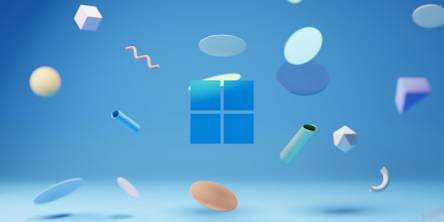The 4 Biggest Alternative Blockchain Network Protocols

Blockchain according to the developer of Bitcoin Satoshi Nakamoto, is a chain of blocks. In general terms, blockchain is a distributed ledger where transaction details are recorded in a secure, permanent, and in a verifiable manner.
The blockchain technology has been referred to as the most innovative and advanced technology in the world now. It is a fully decentralized platform with added records and security capability. The blockchain technology is also a secure one as it makes use of certain technologies like the Byzantine Tolerance mechanism.
Blockchain technology has been adopted and used in various industries and sectors of the economy such as cloud storage, hosting, healthcare, real estate, etc and Bitcoin happens to be the first case use of this technology and since 2009, it has been used for other platforms.
To fully understand how the blockchain works it is important that we describe it as a register. The register containing several pages that are referred to as "blocks", and each of these pages contains transactions. If all pages (blocks) on the register (chain) are filled with transactions it must be added to the register before another page is recorded.
Before any block can be added on the chain, processing will be done to ensure that all parties agree on the information recorded on the chain. It will take about ten minutes for each block to be processed. This has been the major problem of the Bitcoin network.
A transaction fee is paid by users who want to speed up their block processing. These fees are not fixed and it depends on how much each user is willing to pay to speed up the processing speed. These reasons mentioned above are why blockchains are slow and also expensive and this is the reason why other blockchain companies are stepping in to create their own versions.
In this article, we will discuss other networks that the blockchain technology has been adopted and used for.
Ethereum
Ethereum happens to be the second-largest cryptocurrency platform based on its total market capital value. It is a fully decentralized platform that allows for the development of decentralized applications (DApps) and also smart contracts with little or no interference from third parties or intermediaries. This blockchain-based project has its native cryptocurrency as Ether and it has specially designed wallets that can be used to store Ethereum Request Comment (ERC-20) tokens. Decentralized applications are not only created on this blockchain network, but decentralized autonomous organizations are also created and launched on the platform.
Ripple (XRP)
Ripple Launched in 2012, this blockchain-based platform is a decentralized crypto platform that makes use of a distributed open-source consensus ledger and its native crypto token known as XRP. This platform has been described as a payment settlement platform that can carry out fast inter-country transactions. This platform was developed to help banks and other payment gateways by providing them with the needed platform that will allow them to make secure, fast, and cheap transactions across borders. It does this with its crypto token called XRP. This platform happens to be one of the top cryptocurrency platforms in the world based on market capital value.
Hyperledger
Hyperledger was developed in 2015 by the Linux Foundation, this blockchain-based platform solely focuses on ledgers which are targeted at enhancing international transactions and also catering to the needs of leading financial supply chain businesses. The effort of this platform seeks to bring in individuals from different industries and sectors of the economy together in order to advance the blockchain technology. Since its inception, it has developed many projects and more are expected to come in the future. Some of the main features of this blockchain-based project are; creation of a channel that will enhance the sharing of private information, endorsement of transaction policies, and a list of others.
OpenChain
This blockchain protocol is different from that of the others mentioned above. Everyone on the network can spin off instances and every user will have the authority to validate transactions. This means that not just one single ledger will validate transactions but all on the network will be given such authority. On the network, different authority validates different transactions and they all depend on the type of asset that is been exchanged.
Similar Articles
Getting your IPTV to stream without constant interruptions often comes down to a few key things. It's not always about having the fastest internet speed, but more about making sure that speed is steady and reliable
Telegram has become one of the most powerful messaging platforms for communities, creators, and businesses. With built-in bot support and a fast-growing user base, it’s an ideal place to automate conversations, manage FAQs, and collect responses.
Scaling a business is thrilling. It's also terrifying. You gain ten new customers. Then a hundred. Then everything gets... wobbly. The email system crashes.
Setting up a colony on Mars means we need to think hard about how everyone will talk to each other. This isn't just about chatting; it's about getting work done, staying safe, and keeping things running smoothly.
The way we work isn't just changing, it's been completely turned on its head. Remember when the pandemic forced everyone home?
You know that sinking feeling when a project starts strong, then suddenly your client goes dark? Three weeks in, excitement morphs into eerie quiet. Revisions stack up with zero context. Every budget discussion makes your stomach tighten.
The cloud computing market is long past the point of simple migration. It is now defined by the practical application of advanced intelligence and distributed infrastructure.
In the rapidly shifting landscape of digital advertising, entrepreneurs are constantly seeking more reliable ways to connect with their customers across a fragmented web.
Agile and data driven companies have a clear competitive advantage. At least in the modern market. This shift has led to the adoption of specialized software, such as CRM and various SaaS apps.









